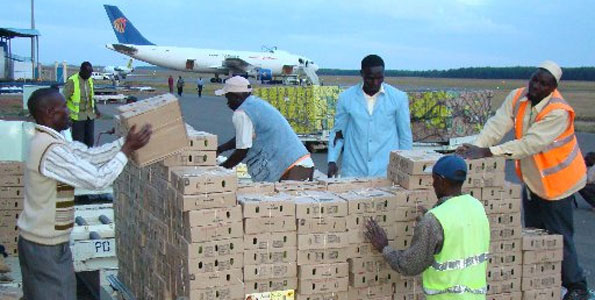Zim targets horticulture project for exports
MASSIVE investment is required to capacitate smallholder farmers to become the spring board of the export-led horticulture revolution with the Government targeting at least 35 000 hectares of solar-powered village plots.
Lands, Agriculture, Fisheries, Water and Rural Development, Dr Anxious Masuka says increased support towards unlocking the potential of smallholder farmers is critical if the country is to increase its export earnings from agriculture.
Market surveys conducted by ZimTrade already indicate that Zimbabwe stands a chance to reap more dividends from agriculture related products, which are on high demand in Western and Asian countries.
Speaking on the sidelines of the Zimbabwe-Dubai Business Forum, which ended last Thursday in the United Arab Emirates (UAE), Dr Masuka said the country was transforming its agriculture sector and invited potential investors to participate in key areas.
In view of the reality of climate change and its negative effects on economies across the world, he said the Government was investing more resources towards climate-proofing the agriculture sector through harnessing water for more efficient utilisation and embracing renewable energy.
This places irrigation development at the centre with more focus on horticulture as a low-hanging fruit that can earn the country the much needed foreign currency, said the minister.
“We’re looking at solar energy for agriculture development and investment in those
areas is most welcome. We’re focusing on horticulture for now to enable the smallholder
farmer to produce for export.
We’re looking at inward investment in modern irrigation technology like drip irrigation
which is solar-powered,” said Dr Masuka.
He said Government intends to establish 35 000ha of solar-powered one-hectare village
plots to empower communities as it moves towards Vision 2030.
“We’re looking forward to massive investment in this area and we invite prospective
investors to partner with us so that we can grow this space and ensure that there is
sustainable production,” said Minister Masuka.
Dr Masuka said Zimbabwe has an advantage in the agro-export market because it was
cultivating organic crops which promote enhanced nutrition and good health.
“We’re looking at growing crops sustainably and organically. We have a non-GMO
(genetically modified organisms) for all the cereal production,” he said.
During last week’s conference, Dubai International Chamber’s director of international
offices, Mr Omar Khan, said the potential for synergies were high between Zimbabwe and
UAE, especially in agriculture.
He indicated that his country was a net importer of food products, which represent about
7,8 percent of its total imports, which creates a window for synergies between the two
countries.
Mr Khan acknowledged Zimbabwe’s expanding manufacturing and food processing
capacity saying this has increased demand for machinery and related equipment, which
can be sourced from Dubai.
He said UAE was eager to invest directly to Zimbabwe’s agro-processing sector to bolster
output in view of the increased demand for processed foods and beverages in the
European Union zone, which has higher appetite for locally produced fruit and vegetable
products.
“This offers lucrative trade and investment opportunities for UAE investors and traders
along the different stages of the Zimbabwean fruit and vegetable supply chain,” he said.
Mr Khan said there were also opportunities in investing in logistics, transportation, cool
storage, manufacturing, retail as well as packaging materials.-The Chronicle









